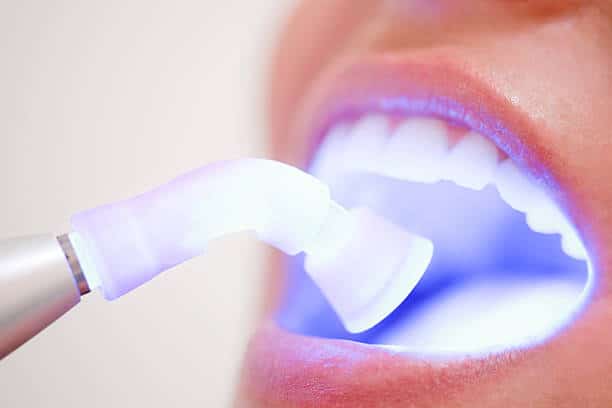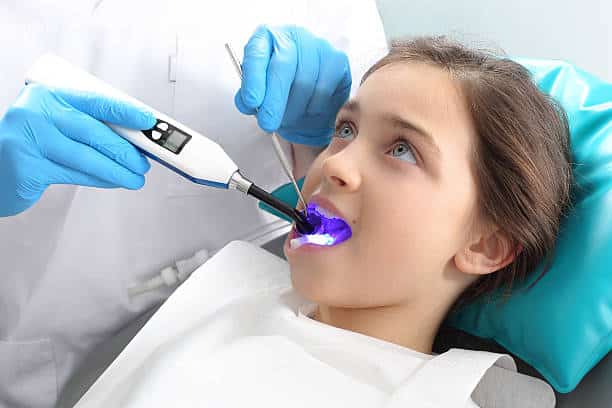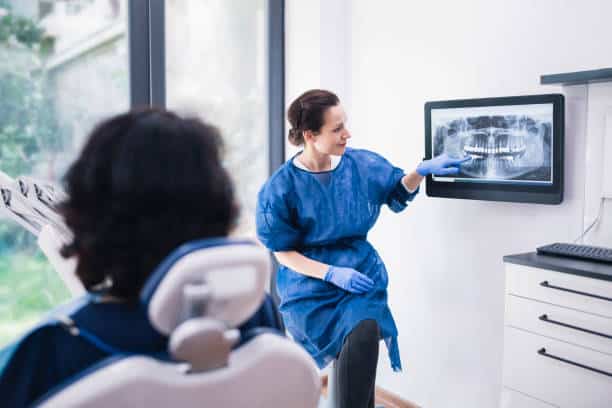Dental Lasers: Innovative Techniques for Treatment
For decades, the drill has been the iconic symbol of a dental visit. While it remains a vital tool, advancements in technology have introduced a new wave of innovative treatment options. Dental lasers are revolutionizing dentistry by offering a more precise, comfortable, and often less invasive approach to a variety of procedures.
Unveiling the Power of Dental Lasers
Dental lasers utilize concentrated beams of light energy to target specific tissues in the mouth. Depending on the wavelength and settings, the laser can vaporize tissue, stimulate healing, or act as a hemostatic agent (to control bleeding). This versatility allows your dentist in Plano to perform various procedures with greater precision and often with minimal discomfort for patients.
Here’s a breakdown of some key benefits of dental lasers:
- Minimally Invasive Procedures: Compared to traditional drills, lasers offer a more targeted approach, minimizing the amount of healthy tissue affected during treatment. This can lead to faster healing times and reduced postoperative discomfort.
- Reduced Bleeding: Lasers have a cauterizing effect, meaning they seal blood vessels as they cut, minimizing bleeding during procedures. This can be particularly beneficial for patients on blood thinners or those who experience anxiety about bleeding.
- Enhanced Precision: Dental lasers offer superior control and focus, allowing our dentist Plano to perform delicate procedures with greater accuracy. This is especially helpful for procedures like gum sculpting or removing small lesions.
- Reduced Need for Anesthesia: The minimally invasive nature of laser dentistry often reduces the need for local anesthesia. This can be a welcome advantage for patients who are apprehensive about needles.
- Faster Healing: Laser technology can stimulate tissue healing and promote faster recovery times. This is beneficial for procedures like gum surgery or frenectomies (removal of a frenulum, a small piece of tissue that can restrict tongue or lip movement).
- Reduced Risk of Infection: The laser’s energy has a bactericidal effect, potentially reducing the risk of infection following some procedures.
Applications of Dental Lasers in Various Procedures
- Gum Disease Treatment: Lasers can be used for precise removal of diseased gum tissue in periodontal therapy. They can also be used to reshape gum tissue for cosmetic purposes (gingivectomy, gingivoplasty).
- Frenectomies: Removing frenulums that restrict tongue or lip movement can be performed more comfortably and with minimal bleeding using lasers.
- Canker Sores and Cold Sores: Laser therapy can accelerate the healing of canker sores and cold sores, reducing discomfort and shortening healing time.
- Dental Fillings: Lasers can be used to remove decay and prepare teeth for fillings in some cases, offering a more comfortable alternative to traditional drilling for some patients.
- Crown Lengthening Procedures: Lasers can be used to reshape gum tissue to expose more tooth surface for crown placement.
- Biopsy Procedures: Lasers can be used for precise and minimally invasive biopsy of suspicious lesions in the mouth.
- Tongue-Tie Release: Frenectomies of the lingual frenulum (tongue-tie) can be performed with lasers more comfortably for infants with minimal bleeding.
Beyond Procedures: Additional Benefits of Dental Lasers
- Reduced Anxiety: The quieter, less invasive nature of laser dentistry can be less intimidating for patients who experience dental anxiety. This can lead to a more positive dental experience overall.
- Improved Patient Comfort: The reduced need for anesthesia for faster healing time often translated to a more comfortable experience for patients undergoing laser dentistry procedures.
- Enhanced Soft Tissue Management: The precise control offered by lasers allows for meticulous treatment of soft tissues in the mouth, leading to better outcomes in procedures like gum surgery.
Considering Laser Dentistry? A Few Points to Ponder
While dental lasers offer numerous benefits, it’s important to understand that they may not be suitable for every procedure. Traditional methods may be more appropriate in certain cases. Discussing your dental needs and concerns with our dentist in Plano can help determine if laser dentistry is the right option for you. Here are some additional factors to consider:
- Complexity of the Procedure: Lasers may not be suitable for all procedures, especially complex ones. Our dentist Plano will assess the specific needs of your case.
- Cost Considerations: Dental laser technology is an investment, and the cost of laser procedures may be higher than traditional methods. Insurance coverage for laser dentistry may vary.
- Dentist’s Expertise: It’s crucial to choose a dentist in Plano who is experienced and trained in using dental laser technology.
Embracing the Future of Dentistry
Dental laser technology is a significant advancement in the field of dentistry. By offering minimally invasive techniques, reduced patient discomfort, and faster healing times, lasers are shaping the future of dental care. If you’re looking for a more comfortable and innovative approach to dental problems contact Independence Dental. We use advanced technology to minimize discomfort during dental treatments.



